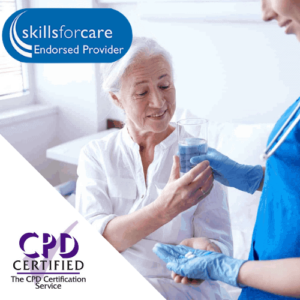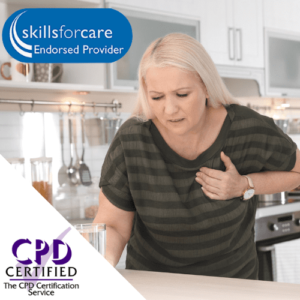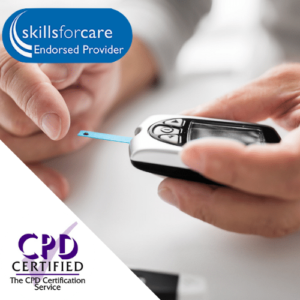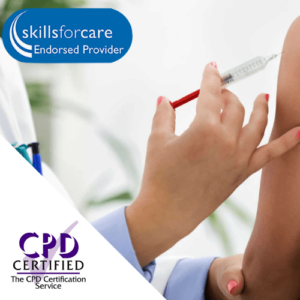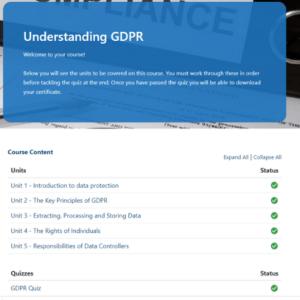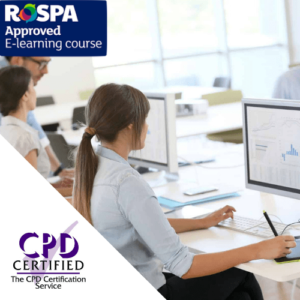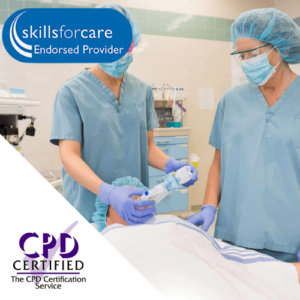In this article
What does a pharmacist do?
A pharmacist is also sometimes known as a dispensing chemist. They are trained healthcare professionals that prepare and dispense medicines, mainly in the community, GP practices or hospitals. They can also help people with minor illnesses by offering guidance and over-the-counter medications. There are many different areas in which to specialise, e.g. oncology, paediatrics, cardiology, etc. Therefore, what a pharmacist does will depend on their place of work and specialisms.
A pharmacist’s main aim is to use their expert knowledge of medicines and health and advise people on the safe use of various medicines and medical appliances, e.g. inhalers. Some individuals need medication to live longer and healthier lives. Therefore, pharmacists make a positive difference to people’s health and well-being. If individuals (and communities) are healthy and happy, it should lower the risk of ill health and diseases and reduce the burden on taxpayers who help fund the NHS. Overall, pharmacists can save lives.
Pharmacists will carry out many tasks, including serving customers annd patients, providing consultations, dispensing prescribed medicines, carrying out medication reviews, selling over-the-counter medicines, advising about health, medicines and medical appliances, ordering and checking stock, supervising staff, etc. The role may also involve some administrative and computer work, e.g. report writing and keeping registers of controlled drugs.
A pharmacist will work with many people, including pharmacy managers, dispensers and technicians, trainees and support staff, i.e. sales assistants. They can also liaise with various external stakeholders, such as the public (customers and patients), suppliers, delivery drivers, doctors, nurses, GPs and other healthcare professionals and regulators, such as the Care Quality Commission (CQC) and local authorities. They may also need to work with the police, coroners and legal professionals.
Pharmacists can work in many sectors and industries, including the National Health Service (NHS), private healthcare, pharmaceutical, education and veterinary. There may also be opportunities to be a pharmacist in the Armed Forces, the Civil Service (e.g. prison pharmacists) and with medical charities. Some roles may enable pharmacists to work overseas, and they can also work via an agency or be self-employed (as a locum).

Responsibilities
A pharmacist’s responsibilities will depend on where they work, their role and their specialisms.
Some examples of common duties can include (this list is not exhaustive):
- Keeping up to date with pharmacy practices, regulations and new medicines.
- Providing consultations to patients, e.g. telephone, online or face-to-face.
- Preparing, dispensing and supplying medicines prescribed by doctors and advanced nurse practitioners and ensuring they are suitable for patients.
- Selling over-the-counter medicines to customers.
- Ensuring medicines are supplied safely, in line with legal requirements, are of the correct quality and dosage and are labelled.
- Advising patients and healthcare professionals on medicines (e.g. prescription and over-the-counter), drug doses, potential reactions, side effects and other risks.
- Answering any questions patients and customers may have.
- Giving guidance and information on treatments and self-help for symptoms of minor illnesses.
- Instructing people on the use of medical appliances, such as inhalers.
- Providing various vaccinations, e.g. flu and COVID jabs.
- Carrying out medication reviews.
- Ordering, monitoring and controlling stock.
- Providing various screening tests, e.g. blood pressure, diabetes or cholesterol.
- Offering other services, such as smoking cessation courses and advice.
- Supervising and training pharmacy technicians, junior pharmacists, trainees and other staff.
- Liaising with doctors and nurses about prescriptions.
- Keeping a register of controlled drugs.
- Managing finances and budgets.
- Researching new medications and running clinical trials (in academia or pharmaceuticals).
Working hours
A pharmacist can expect to work 38–40 hours a week, but they can do more or fewer hours depending on their role, where they work and their employment status, e.g. employed or self-employed. There may be flexible working opportunities, e.g. part-time, job share or hybrid working.
Although Monday–Friday is typical, pharmacists can also work unsociable hours, e.g. evenings, weekends and bank holidays. Travel may be necessary for some, i.e. if they are a locum or work in the community, which can lengthen the working day. There may also be opportunities to work away from home and overseas, but these are not common.

What to expect
Being a pharmacist is not easy, but it is a rewarding career choice. Their expert knowledge in health and medicines helps people to live longer and healthier lives and can also prevent illnesses and diseases. Seeing people’s health and well-being improve can be fulfilling for pharmacists, and they can go home at the end of the working day knowing they have made a positive difference to patients and their families. They are also key workers and are respected and appreciated in communities and society.
The role would suit scientifically minded individuals who want to be integral in improving lives. Enjoying working with people is a must, as pharmacists will see patients and customers from all walks of life with various medical needs and health problems during their working day.
Boredom will never be a problem for pharmacists, as their work is very varied, interesting and fast-paced. No two days are the same in this role, and individuals will learn something new each day. There are many types of prescription/over-the-counter medicines and medical appliances, including new ones, and pharmacists must understand how they work.
There is no shortage of pharmacist (and related) roles across the UK, especially in cities and towns. The salary is also competitive compared to other career choices. However, it does reflect the level of education, training, time, responsibility and commitment needed to become a pharmacist.
Even though being a pharmacist is rewarding, and there are many positives associated with the role, they may also face challenges, for example:
- A lot of responsibility – pharmacists have lots of responsibility in their roles. They must ensure patients and customers have the correct medicines and advice. They must have excellent attention to detail, as mistakes can harm people and, in severe cases, cost lives. Pharmacists must also keep up to date with medicines, as there are a lot of changes in the pharmaceutical industry, i.e. drug name changes.
- Challenging patients and customers – pharmacists, especially in communities, will have a customer-facing role and interact with many people at work. Unfortunately, not all people are pleasant to deal with and can be rude, impatient, angry and, in some cases, abusive. There is a risk of verbal and physical abuse when working in any healthcare environment, especially when dispensing medicines to addicts. Employers must reduce and manage the risk of work-related violence, so there are ways of prevention. However, prospective pharmacists must be aware of the risk.
- Time, study and cost to become a pharmacist – it takes around five years to become a pharmacist, and they will need to study a lot and complete practice-based teaching. Individuals must pass various assessments and meet the requirements to become registered. Therefore, they will need to be academic and enjoy learning. Studying for a pharmacy degree is not cheap, i.e. the tuition fees can be up to £10,000 a year for UK students.
- Physical and mental demands – the role can sometimes be mentally demanding and stressful, as workloads can be high, deadlines can be tight and there are different demands to juggle. It can also be physically demanding, as pharmacists are usually on their feet for most of the working day, and some may need to travel in the community, which can be tiring.
Every career choice has pros and cons, and individuals must know what to expect before deciding whether it is a suitable career. There is no doubt that working in healthcare and with injured or unwell people is challenging and stressful. It is also physically and mentally demanding, and there is lots of responsibility. However, there are many positives and helping people live a better quality of life is why individuals become pharmacists.
When considering whether to be a pharmacist, individuals should look at the pros and cons. They should also ensure they have the necessary personal qualities to carry out the role and responsibilities required.
Personal qualities needed to be a pharmacist
Some of the personal qualities a pharmacist requires will include (this list is not exhaustive):
- An interest in science and pharmacology.
- Knowledge of physiology and the human body.
- Knowledge of maths.
- Knowledge of medicines, drugs, doses, interactions and side effects.
- A passion for helping people.
- An excellent memory.
- Non-judgemental, positive, empathetic, caring, tactful, helpful and friendly.
- Sensitivity and understanding.
- Confident, assertive, determined, enthusiastic, focused and motivated.
- Diligent, conscientious, responsible, trustworthy and honest.
- Excellent communication skills, both written and verbal.
- Excellent interpersonal skills.
- Conflict management skills.
- Business management skills.
- Researching and analysing skills.
- Customer service skills.
- Active listening skills.
- Organisational and time management skills.
- Being thorough, accurate and having excellent attention to detail.
- The ability to identify errors.
- The ability to explain complicated information and advise patients and customers simply, clearly and concisely.
- The ability to work well with others in a team and alone using their own initiative.
- The ability to work under pressure, be patient and remain calm in stressful situations.
- The ability to cope with multiple demands.
- The ability to accept criticism.
- The ability to motivate others to encourage them to make changes.
- The ability to understand others and their lifestyles.
- The ability to develop relationships with people from different backgrounds.
- The ability to use IT and software packages.
Qualifications
To become a pharmacist, individuals need to complete:
- A four-year Master’s degree in pharmacy (MPharm) approved by the General Pharmaceutical Council (GPhC); and then
- A one-year pre-registration pharmacist foundation training scheme It is a paid work placement.
To be accepted for the MPharm degree, individuals will typically require the following:
- At least five good GCSEs (or equivalent), including maths, English language and one science.
- Three good A Levels (AAB-BBB) (or equivalent), e.g. chemistry and a second science or maths.
There are two-year pharmacy foundation degrees for individuals who do not have the necessary grades to get onto the MPharm degree course. They will require at least one relevant A Level and GCSEs. After completing a foundation degree, they can work as a pharmacy technician or assistant and then apply for the second-year MPharm degree.
Some universities may ask individuals to pass tests to get a placement, and some may require a personal statement and interview. The grades and tests will depend on the university entry requirements, and individuals should check before applying.
Registration
After completing an approved Master’s degree in pharmacy (MPharm), individuals must register with the General Pharmaceutical Council (GPhC) to legally practise as a pharmacist in Great Britain. Individuals in Northern Ireland must register with the Pharmaceutical Society of Northern Ireland (PSNI).
To be accepted on the register, individuals must:
- Pass a GPhC registration assessment or PSNI registration examination.
- Meet all GPhC or PSNI professional, fitness to practise and ethical standards.
Registration must be renewed annually to continue to practise. There is a cost to become registered and revalidate registration. There are also CPD requirements.
Pharmacists who have achieved an overseas qualification will still need to register with the GPhC to practise legally. They will need to attend an Overseas Pharmacists’ Assessment Programme (OSPAP), complete the one-year foundation training programme and pass the registration assessment.

Work experience
It is advisable to get some manner of paid or voluntary work experience in a healthcare environment. Practical experience helps individuals understand what is involved in working in a healthcare setting, builds their knowledge and skills, and allows them to appreciate the demands of the job and environment.
Individuals may be able to apply for relevant work experience in healthcare settings, such as hospitals, health centres, GP practices, pharmacies, etc. They could start work as pharmacy assistants, shadow/observe pharmacists and see what the role entails. Alternatively, they could complete an accredited pharmacy technician course or apprenticeship to become a pharmacy technician but they will still need to register with the GPhC.
Gaining experience in a public-facing role can also be beneficial. Individuals could work in retail or volunteer for charities (e.g. hospices, food banks and conservation), community schemes, not-for-profit organisations, etc. There is information on volunteering and local opportunities on Do-IT, NCVO and Volunteering Matters.

CPD training courses
Learning does not stop with experience or once someone becomes qualified. Attending relevant training courses and having additional certifications can help individuals enter the profession, enhance their employability and give them a competitive edge.
We offer numerous courses that could be beneficial for pharmacistsuch as (this list is not exhaustive):
- Data protection and the GDPR.
- Customer service skills.
- Time management.
- Risk assessment.
- Work-related violence.
- Work-related stress.
- Display screen equipment.
- First aid.
- Administering medication.
- COVID-19 awareness.
- Infection control.
- Needles and sharps.
- Equality and diversity.
- LGBTQ+ awareness.
- Diabetes awareness.
- ADHD awareness.
- Disability awareness.
- Cardiovascular disease awareness.
- Safeguarding.
Professional bodies, charities, not-for-profit organisations and associations, such as the General Pharmaceutical Council (GPhC), the Royal Pharmaceutical Society (RPS), the National Pharmacy Association (NPA), the Pharmacists’ Defence Association (PDA), the Pharmaceutical Society of Northern Ireland (PSNI), the Pharmacy Forum NI (PFNI), Pharmacist Support and others, can also advise on reputable training courses. Some also provide memberships, events and support to help individuals become pharmacists and give those already in the profession the means to continue their professional development.
The type of training required will depend on who an individual works for and their specialisms. It is worth looking at several job advertisements to identify the training needed for roles. Jobs can be found on websites such as GOV.UK find a job service, Indeed, LinkedIn, Glassdoor, NHS Jobs, NHSScotland Jobs, pharmaceutical-journal.com, Pharmacy Jobs & Careers at Boots, C+D Jobs, Pharmacist Support and others. Also, look at specialist recruitment agencies for pharmacist roles.
More relevant training and competence (skills, experience and knowledge) will open up more opportunities. Refresher training is also advisable as it is a legal requirement and keeps an individual’s knowledge and skills up to date.
Criminal records checks
Pharmacists must undergo a criminal record check, as they will have contact with children and vulnerable adults. A criminal record, caution, warning or conviction may put off prospective employers or affect registration. However, employers should account for the seriousness of the crime, when it occurred and its relevance to the role.
The organisation that holds criminal records will depend on the country within the UK, for example:
- England and Wales – Disclosure and Barring Service (DBS).
- Northern Ireland – AccessNI.
- Scotland – Protecting Vulnerable Groups (PVG) scheme.
Driving
Most pharmacists will need a full driving licence (preferably with no points), especially when working in the community and delivering medications to other settings, such as nursing homes. Some roles will provide a company vehicle, but others may require individuals to use their own, which must have business insurance.

Where do pharmacists work?
Pharmacists can work for many employers, such as (this list is not exhaustive):
- The National Health Service (NHS).
- The private healthcare sector, e.g. Bupa and Nuffield.
- The Armed Forces, e.g. the Royal Air Force (RAF), the Army and the Royal Navy.
- The education sector in academia.
- The Civil Service.
- The charitable sector.
- The pharmaceutical industry, including veterinary.
They can also work as a locum or be self-employed/freelance.
Pharmacists mainly work in cities and towns, but there may be opportunities in more rural areas, such as villages.
They can work in various settings, including:
- GP practices.
- High-street (community or retail) pharmacies.
- Hospital pharmacies.
- Health centres.
- Laboratories.
- Universities.
- Research facilities.
- Clinics.
- Urgent treatment centres.
- Prisons.
- Pharmaceutical manufacturing and production facilities.
- Call centres (i.e. NHS 111).
- Their own homes (if working remotely).
They may also make visits to various community locations, such as:
- Care homes.
- Nursing homes.
- Hospices.
- Community centres and village halls.
- Patients’ homes.
The role may require local or national travel and overnight stays. There may be options to do work overseas, but these are uncommon.

How much do pharmacists earn?
The exact salaries for pharmacists will depend on the following:
- Where they are in their training.
- Their location, i.e. if they are working in London, they will receive a supplement.
- Their experience.
- Their specialist areas.
- Whether they are employed, self-employed or freelance.
- The size of their employer.
- Their working hours, e.g. full-time, part-time, locum or flexible.
- Whether they work for the NHS, privately or for other employers.
Pharmacists in pre-registration foundation training will usually earn £16,000–£20,000+.
If a pharmacist works for the NHS, e.g. in hospitals and GP practices, their pay will be in line with the NHS agenda for change pay rates.
Here are some examples of salaries (these figures are a guide only and are subject to change):
- Newly qualified pharmacists (band 6) – £33,706–£40,588 a year.
- Experienced pharmacists (band 7) – £41,659–£47,672 a year.
- Senior pharmacists (bands 8a-8d) – £48,526–£91,787 a year.
- Chief pharmacists (band 9) – £95,135–£109,475 a year.
Salaried pharmacists will also receive further benefits, e.g. pension scheme, sick pay, generous annual leave and maternity pay.
Community pharmacists’ salaries can differ. However, many pharmacies will typically have similar pay and benefits as the NHS agenda for change pay rates.
There is potential for pharmacists to earn more if they work in the private healthcare sector or as a locum. Experienced pharmacists may earn higher salaries if they combine clinical work with research and teaching.

Types of pharmacist roles to specialise in
Pharmacists can specialise in different settings, such as community or hospital pharmacies. They can also specialise in various clinical areas, especially when working in hospitals.
Some examples of specialised pharmacist roles include (this list is not exhaustive):
- Geriatric pharmacist – specialises in elderly patients and associated medication issues, e.g. forgetting to take medicines when required.
- Paediatric pharmacist – specialises in medicines and treatments for infants and children in various development stages (under 18 years old).
- Dermatology pharmacist – specialises in patients with various skin problems.
- Mental health pharmacist – is responsible for medication and medicine reviews for those with mental health problems, e.g. depression.
- Mental health pharmacist – is responsible for medication and medicine reviews for those with mental health problems, e.g. depression.
- Renal pharmacist – specialises in patients with kidney conditions, e.g. renal failure, as they can suffer more side effects with medicines than others.
- Cardiology pharmacist – specialises in patients with heart conditions and helps them to maintain their heart health.
- Women’s health pharmacist – specialises in women’s specific health matters, e.g. contraception, pregnancy, urinary incontinence and menopause.
Various pharmacist roles will require differing knowledge, skills, experience and qualities. Some may need specific qualifications, e.g. postgraduate, and additional training for specialised areas, such as veterinary pharmacy. All pharmacists must have expert knowledge of health, medicines and medical appliances and excellent attention to detail to spot any errors. Any additional areas of expertise will depend on an employer’s requirements (if employed) and the type of role an individual wants.
Pharmacists not competently carrying out their roles, e.g. giving incorrect advice, medications and doses, can cause physical/mental health or injuries to worsen and may even cost lives. It can also affect a pharmacist’s reputation. In serious cases, they may have their registration revoked (i.e. struck off). Therefore, whatever the type of role, pharmacists must have the necessary competence to carry out their work professionally and safely. They should also know the limits of their competency, i.e. asking for help when something is beyond their expertise and not doing any tasks in which they are untrained.

Professional bodies
Guidelines, standards, codes, laws, medicines, drugs, equipment and technologies are regularly changing. Therefore, pharmacists must keep abreast with the latest developments and changes to carry out their roles effectively, safely and correctly. Continuing professional development (CPD) gives pharmacists the knowledge and skills to keep up to date with these changes, understand their responsibilities, be legally compliant and progress in their careers. It is also a mandatory requirement when renewing registration (revalidation).
Joining professional bodies, charities, not-for-profit organisations and associations, such as the General Pharmaceutical Council (GPhC), the Royal Pharmaceutical Society (RPS), the National Pharmacy Association (NPA), the Pharmacists’ Defence Association (PDA), the Pharmaceutical Society of Northern Ireland (PSNI), the Pharmacy Forum NI (PFNI), Pharmacist Support and others, can help individuals enhance their skills and overall careers. They offer different levels of membership, CPD, support, access to industry contacts and networking events.
There is ample opportunity for career progression for pharmacists. With more qualifications and experience, they can become a senior, lead or chief pharmacist and even a consultant, and manage a team. They can also decide to develop in a specific area, such as geriatric, paediatric or oncology pharmacy. Alternatively, they may choose to become a locum, work in a hospital or GP practice or set up their own community pharmacy business.
Knowledge, skills and experience can also lead to a career in different areas. For example, pharmacists may want to work in education and training and teach pharmacy students, carry out clinical research and development, or move into scientific journalism. They may also decide to work in different sectors, such as the Armed Forces, the prison service or the pharmaceutical industry.


